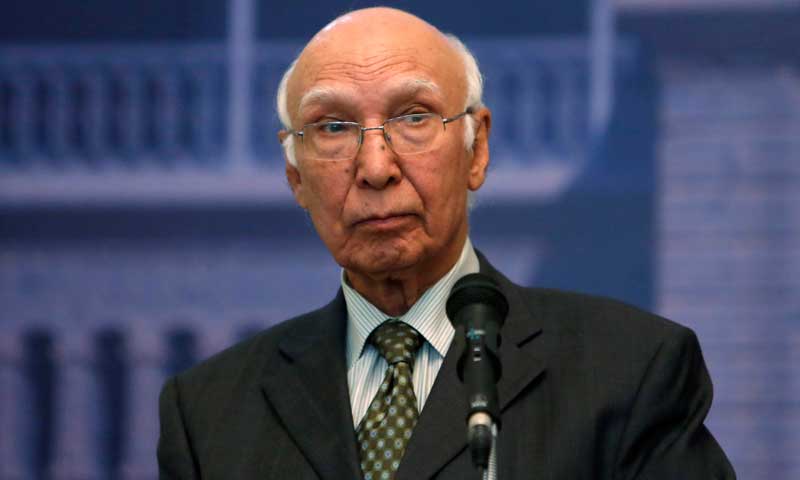'Good' And 'Bad' Taliban Comes to Haunt Pakistan Again
Pakistan's national security advisor Sartaj Aziz's comments on militancy in the region have sparked

NEW DELHI: A recent remark by Pakistan’s national security advisor Sartaj Aziz that seemed to draw a distinction between ‘good’ Taliban and ‘bad’ Taliban -- based on the threat to Pakistan -- has drawn criticism, especially as it comes in the wake of Pakistan and Afghanistan’s efforts to improve relations. Afghan President Ashraf Ghani recently concluded a two-day trip to Islamabad.
Pakistan’s Foreign Office immediately issued a statement distancing itself by saying that Aziz’s comments were reported ‘out of context.’
In an interview with BBC Urdu, Aziz, arguing that Pakistan needn’t target militants who do not pose a threat to Pakistan’s national security, said, “Why should America’s enemies unnecessarily become our enemies?” “When the United States attacked Afghanistan, all those that were trained and armed were pushed towards us,” Aziz said, adding that whilst some militants posed a threat to Pakistan, others did not. “Why must we make enemies out of them all?” the security advisor reportedly said.
Aziz added that the Afghan Taliban and the Haqqani network were Afghanistan’s problem, and not Pakistan’s. The Haqqani network, specifically, has been a major bone of contention between the two countries, with Afghanistan accusing Pakistan of not doing enough to tackle militants who have seeked shelter in the country’s restive North Waziristan province.
Pakistan’s Foreign Office immediately issued a counter. “The advisor made the statement in a historical context,“ FO spokesperson Tasneem Aslam said in a statement. “As for [the] present, Pakistan has launched operation Zarb-i-Azb and taking action against all groups without any distinction or discrimination,” the spokesperson said, adding that Pakistan’s commitment to militancy needs to be seen in the context of Zarb-i-Azb, concentrated in North Waziristan.
The FO issued its response after Aziz’s comments drew widespread criticism -- especially in the political climate of mending ties. "Such statements, and that from a government official, can boldly impact the relations between Afghanistan and Pakistan," TOLO news quoted Latif Faridi, a Pakistani analyst, saying. "Lately, the relations between Afghanistan and Pakistan had improved, but such statements can again worsen the relations," said Safdar Hayat, another senior Pakistani analyst.
TOLO also quoted the Police Chief of Kandahar Gen. Abdul Raziq -- who has repeatedly accused Pakistan for bolstering insurgency across the border in Afghanistan -- saying, “Pakistan has always carried out its overt interference into Afghanistan… We and our security forces are ready to prevent the overt interference of Pakistan” and additionally accusing the international community of ignoring Pakistani aggression.
The controversy comes in the wake of Afghan President Ashraf Ghani’s two-day visit to Islamabad, which was projected in the media as a “fence mending mission.” At the end of the visit, the two countries agreed to cooperate economically and to jointly tackle terrorism. Speaking at a joint news conference, PM Sharif called Ghani a “dear brother,” adding that “our two countries face formidable challenges, including extremism and terrorism, a precarious security environment and trans-national crimes... I am convinced that we can effectively meet them, through common resolve and common endeavours.”
President Ghani, at the same conference, said, “We have overcome obstacles of 13 years in three days… We will not permit the past to destroy the future.” “We have begun a comprehensive dialogue on security so that all dimensions of our mutual security can be discussed, delineated and benchmarked processes can be arrived at to build confidence,” the Afghan President said.
Referring to terrorism -- a key reason for the deteriorating ties -- Ghani said that instability in Pakistan affects Afghanistan, and vice versa. “That’s where I think our common understanding of new threats will enable us to delineate pathways where actions will be concrete and speak louder than words,” Ghani had concluded in a statement very much at variance with Aziz’s approach to terrorism in the region.



